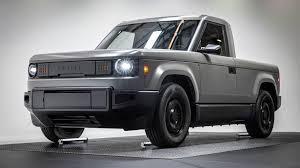
Breaking News
 Ron's Take: The US and Iran War
Ron's Take: The US and Iran War
 Kurdish Boots on the Ground with US/Israeli Air and Drones
Kurdish Boots on the Ground with US/Israeli Air and Drones
 Clinton Epstein Deposition Highlights: Ex-President & Secretary Of State Grilled On Ties...
Clinton Epstein Deposition Highlights: Ex-President & Secretary Of State Grilled On Ties...
Top Tech News
 US particle accelerators turn nuclear waste into electricity, cut radioactive life by 99.7%
US particle accelerators turn nuclear waste into electricity, cut radioactive life by 99.7%
 Blast Them: A Rutgers Scientist Uses Lasers to Kill Weeds
Blast Them: A Rutgers Scientist Uses Lasers to Kill Weeds
 H100 GPUs that cost $40,000 new are now selling for around $6,000 on eBay, an 85% drop.
H100 GPUs that cost $40,000 new are now selling for around $6,000 on eBay, an 85% drop.
 We finally know exactly why spider silk is stronger than steel.
We finally know exactly why spider silk is stronger than steel.
 She ran out of options at 12. Then her own cells came back to save her.
She ran out of options at 12. Then her own cells came back to save her.
 A cardiovascular revolution is silently unfolding in cardiac intervention labs.
A cardiovascular revolution is silently unfolding in cardiac intervention labs.
 DARPA chooses two to develop insect-size robots for complex jobs like disaster relief...
DARPA chooses two to develop insect-size robots for complex jobs like disaster relief...
 Multimaterial 3D printer builds fully functional electric motor from scratch in hours
Multimaterial 3D printer builds fully functional electric motor from scratch in hours
 WindRunner: The largest cargo aircraft ever to be built, capable of carrying six Chinooks
WindRunner: The largest cargo aircraft ever to be built, capable of carrying six Chinooks
Slate Truck's Under $20,000 Price Tag Just Became A Political Casualty

Slate Auto's sub-$20,000 price tag for its electric pickup may be a victim of the Trump administration's "Big Beautiful Bill."
The startup had pledged to launch an ultra-affordable EV truck "expected under $20,000 after federal incentives." But that price tag quietly disappeared from its website on Thursday, as TechCrunch first reported. The reason: The Trump administration's newly passed spending package, which has now cleared both the House and Senate, eliminates the federal tax credits that made such a price point possible.
EVs have long cost more than their gas-powered counterparts, mainly due to the high cost of lithium-ion batteries. Slate Auto—backed by Jeff Bezos—hoped to change that with a radically minimalist approach: sell a no-frills electric truck as a "blank slate" and let customers bolt on features as they go, like a life-sized Lego kit.
To hit the sub-$20,000 target price, the base model was stripped down to the essentials: a single gray color, two seats, a flatbed, a steering wheel and a simple gauge cluster displaying battery status and charging info. Everything else—from paint options and power windows to infotainment, cupholders and even speakers—would cost extra. Buyers can even convert the truck into an SUV or fastback using bolt-on roof panels.
Slate hasn't disclosed how much the add-ons will cost or how high the final price could climb. But the concept clearly resonated, with the company receiving over 100,000 reservations within two weeks of unveiling the truck.
Falling battery prices and Slate's bare bones approach could still allow it to price the vehicle competitively. But without the federal tax credit, the company loses its strongest hook and faces a tougher pitch.
With Tesla and legacy automakers inching closer to sub-$30,000 EVs that aren't bare bones, Slate will now have to prove how its stripped-down truck still makes sense without Uncle Sam's help.

 Tulsi Gabbard Should Resign
Tulsi Gabbard Should Resign
 RNA Crop Spray: Should We Be Worried?
RNA Crop Spray: Should We Be Worried?

